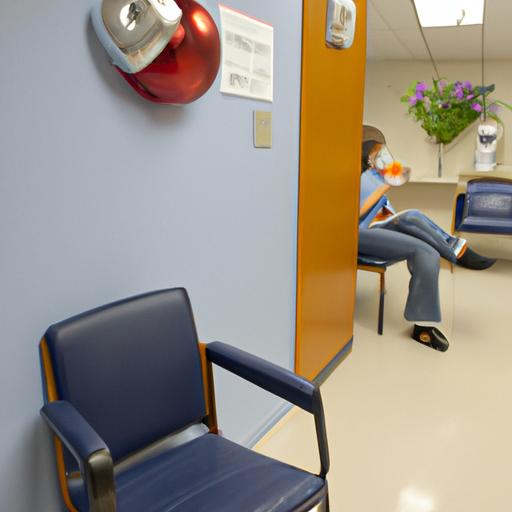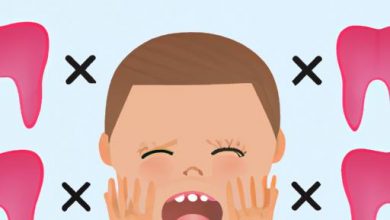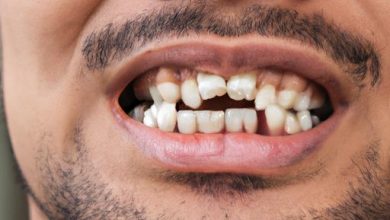Can You Go to A&E for Dental Problems?
Dental problems are common, and many people experience dental emergencies that require immediate attention. However, not everyone knows where to go for help when they are experiencing dental problems. One question that is often asked is whether patients can go to A&E for dental problems. In this article, we will explore this question and provide you with the information you need to know.
Introduction

Accidents can happen at any time, and dental problems are no exception. When experiencing dental emergencies, it’s essential to know where to go for help. Many people are unsure whether they should go to A&E for dental problems. In this article, we will provide you with the necessary information to help you make the right decision.
Types of Dental Problems
Dental problems can range from mild to severe. Some of the most common dental problems include broken or chipped teeth, toothaches, gum problems, and others. Let’s take a closer look at each of these problems.
Broken or Chipped Teeth
Accidents can cause teeth to break or chip, and this can be a painful experience. A broken or chipped tooth can also affect your smile and self-confidence. If you experience a broken or chipped tooth, it’s essential to seek immediate dental attention.
Toothaches
Toothaches can be caused by various reasons, such as tooth decay, gum disease, or a dental abscess. The pain can be excruciating, and it’s important to seek dental care as soon as possible to avoid further complications.
Gum Problems
Gum problems are prevalent, and they can range from mild to severe. Gum disease is one of the most common gum problems, and it can lead to tooth loss if left untreated. Other gum problems include gum abscesses, gum recession, and gum swelling.
Others
Other dental problems include oral infections, broken braces, and lost fillings or crowns. These problems can cause discomfort and pain, and it’s essential to seek dental care as soon as possible.
Emergency Dental Treatment
Emergency dental treatment is required when a patient is experiencing severe pain, bleeding, or swelling. In some cases, delaying treatment can lead to more severe complications. Emergency dental treatment can include tooth extractions, root canal treatment, and the repair of broken or damaged teeth. If you are experiencing a dental emergency, it’s essential to seek immediate dental care.
Examples of Emergency Dental Treatment
Some examples of emergency dental treatment include:
- Severe toothache
- Cracked or broken teeth
- Abscesses or infections
- Lost or broken fillings or crowns
- Bleeding gums
- Trauma to the mouth or teeth
How to Know if a Dental Problem is an Emergency
It’s not always easy to know whether a dental problem is an emergency or not. However, if you are experiencing severe pain, swelling, or bleeding, it’s essential to seek immediate dental care. Delaying treatment can lead to more severe complications and can even be life-threatening in some cases.
A&E for Dental Problems
A&E services are designed to provide emergency care for patients who are experiencing severe or life-threatening conditions. While A&E is not the first place you might think of when experiencing dental problems, it can be an option for some patients.
Eligibility for A&E Services for Dental Problems
Not all patients are eligible for A&E services for dental problems. A&E is designed to provide emergency care for life-threatening conditions, and dental problems are not always considered life-threatening. However, if you are experiencing severe pain, swelling, or bleeding, you may be eligible for A&E services.
When to Go to A&E for Dental Problems
If you are experiencing severe pain, swelling, or bleeding, and you are unable to see a dentist, you may need to go to A&E for emergency care. However, it’s important to note that A&E services are not always equipped to deal with dental problems, and you may be referred to a dental clinic for further treatment.
Advantages of Going to A&E for Dental Problems
The advantage of going to A&E for dental problems is that you can receive emergency care when you need it most. A&E services are available 24/7, and they can provide pain relief and treatment for severe dental problems. However, it’s important to note that A&E services are not always equipped to deal with dental problems, and you may be referred to a dental clinic for further treatment.
Alternatives to A&E for Dental Problems
While A&E can provide emergency dental treatment, there are other options available. Here are some of the alternatives to A&E for dental problems:
NHS Dental Services
NHS dental services offer a range of dental treatments, including emergency dental care. If you are registered with an NHS dentist, you can contact them for emergency dental treatment. If you are not registered with an NHS dentist, you can still access emergency dental treatment by contacting NHS 111.
Private Dental Services
Private dental services offer emergency dental treatment, and you can usually access treatment quickly. Private dental clinics usually have extended opening hours, and you can contact them outside of regular business hours.
Other Options
If you are experiencing dental problems and cannot access emergency dental treatment, you can try the following:
- Over-the-counter pain relief medication can help alleviate pain temporarily.
- Avoiding hard or chewy foods and sticking to soft foods can help reduce discomfort.
- Using a saline solution to rinse your mouth can help reduce inflammation and pain.
- Applying a cold compress to your cheek can help relieve pain and swelling.
Conclusion
In conclusion, dental problems can be painful and require immediate attention. While A&E can provide emergency dental treatment, there are other options available, such as NHS dental services and private dental services. It’s important to seek dental care as soon as possible to avoid further complications. Remember, prevention is better than cure, and maintaining good oral hygiene can help prevent dental problems. If you have any concerns about your dental health, contact your dentist or dental care provider. At Zahnweiss Info, we are dedicated to providing you with the latest updates on dental health news, treatments and therapies, inspiring patient stories, and expert advice to help you live your healthiest life.




